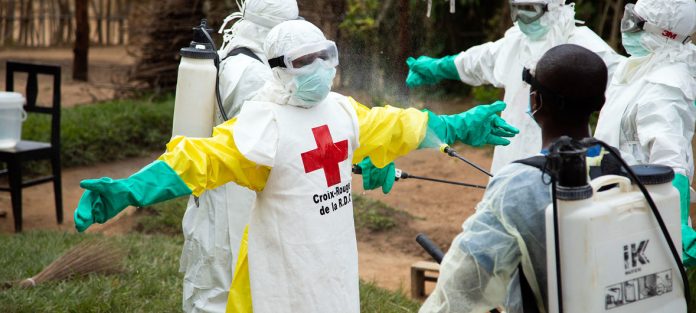The Democratic Republic of Congo on Sunday announced a “resurgence” of Ebola in its troubled east after a woman died of the disease, just three months after authorities declared the end of the country’s previous outbreak.
“We have another episode of the Ebola virus” in the Biena health zone of North Kivu province, Health Minister Eteni Longondo told state television RTNC.
“It was a farmer, the wife of a survivor of Ebola, who showed typical signs of the disease on February 1,” he added.
She died on February 3, after which a sample of her blood tested positive for Ebola, the health ministry said.
DR Congo declared on November 18 the end of its 11th Ebola outbreak, which claimed 55 lives out of 130 cases over nearly six months in the northwestern province of Equateur, AFP reports.
The last person declared recovered from Ebola in Equateur was on October 16.
ALSO READ: WHO reiterates commitment to ensure Nigeria gets COVID-19 vaccines in February
The widespread use of Ebola vaccinations, which were administered to more than 40,000 people, helped curb the disease.
The return of Ebola in the country’s northeast — a region plagued by violence between armed groups — comes as the vast African country is also fighting its own COVID-19 outbreak.
A previous Ebola outbreak in the DRC’s east, which ran from August 1, 2018, to June 25 2020, was the country’s worst-ever, with 2,277 deaths.
It was also the second-highest toll in the 44-year history of the disease, surpassed only by a three-country outbreak in West Africa from 2013-16 that killed 11,300 people.
Ebola hemorrhagic fever was first identified in 1976 after scientists probed a string of unexplained deaths in what is now northern DRC.
The symptoms are severe: high fever and muscle pain followed by vomiting and diarrhoea, skin eruptions, kidney and liver failure, internal and external bleeding.
The average fatality rate from Ebola is around 50 per cent but this can rise to 90 percent for some epidemics, according to the World Health Organisation (WHO).
